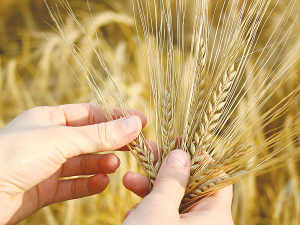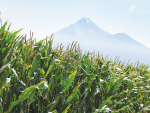The benchmark measure of world food commodity prices ended 2023 approximately 10% lower than its year-earlier level.
That’s according to the Food and Agriculture Organization of the United Nations which says the sharpest drop in commodity prices came from international sugar quotations.
The FAO Food Price Index, which tracks monthly changes in the international prices of a set of globally-traded food commodities, averaged 118.5 points in December, down 1.5% from November and down 10.1% from December 2022.
For 2023 as a whole, the index was 13.7% lower than the average value over the preceding year, with only the international sugar price index higher over the period.
The FAO Cereal Price Index increased by 1.5% from November, as wheat, maize, rice, and barley prices all rose, partly reflecting logistical disruptions that hindered shipments from major exporting countries.
For the year as a whole, the index was 15.4% below the 2022 average, reflecting well supplied global markets, although FAO’s All Rice Price Index registered a 21% increase, largely owing to concerns about the impact of El Niño on rice production and in the aftermath of export restrictions imposed by India.
The FAO Vegetable Oil Index, by contrast, declined by 1.4% from November, reflecting subdued purchases of palm, soy, rapeseed, and sunflower seed oil, with soy oil in particular impacted by a slowdown in demand from the biodiesel sector as well as improving weather conditions in major growing areas of Brazil.
For 2023 as a whole, this index was 32.7% below the previous year’s level.
The FAO Sugar Price Index declined 16.6% from November, hitting a nine-month low although it was still up 14.9% from December 2022.
The plunge in sugar quotations was mainly driven by the strong pace of production in Brazil, along with the reduced use of sugarcane for ethanol production in India.
Meanwhile, the FAO Meat Price Index dipped 1.0% from November, reaching a level 1.8% below that of December 2022, impacted by persistent weak import demand from Asia for pig meat.
Regional buying interest also slowed for bovine and poultry meat despite ample exportable supplies in large producing region. Ovine meat prices by contrast rose ahead of the holiday season.
Bucking the trend, the FAO Dairy Price Index increased by 1.6% from November, although it still stands 16.1% below its December 2022 value.
The monthly increase was led by higher price quotations for butter and cheese, underpinned by strong internal sales in Western Europe ahead of the holiday season.
At the same time, strong global import demand led international whole milk powders to rise.



















